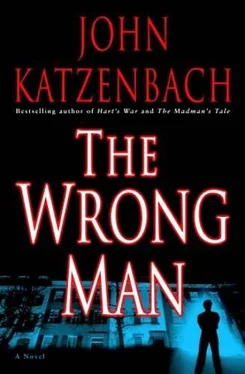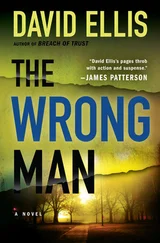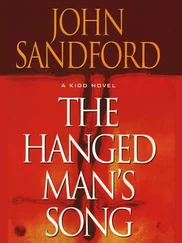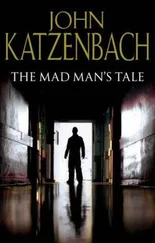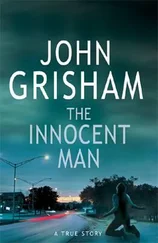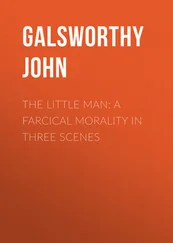“I don’t like this. Not at all,” Ashley said. “I don’t think it’s in the slightest bit fair. Or right.” But she and Catherine trudged up the stairs.
The three remaining behind were quiet, watching them exit. Sally said, “Thank you, Hope. That was a pretty smart move.”
“It’s not chess,” Hope said.
“But it is,” Scott said. “Or, at least, it’s about to be.”
It took a little time, but they were able to hash out the initial division of responsibilities.
From the bare bones they had acquired in Murphy’s report, Scott was to delve into Michael O’Connell’s past. See his home, investigate where he grew up, uncover whatever possible about O’Connell’s family, work history, education. It would be up to Scott to ascertain who they were really up against. Sally was to spend the weekend examining the law. They did not know what crime they wanted to assign to Michael O’Connell, not yet, although they suspected it would have to be a major felony. They avoided the word murder throughout their conversation, but it lurked in everything they said.
Creating a crime out of whole cloth requires some planning, which was Sally’s job. She was to ascertain not merely what the best crime would be-that is, what would remove O’Connell most certainly from their lives for the longest period-but also what crime would be the easiest for the state to prove. What would quickly and efficiently lead to O’Connell’s arrest. What would be least likely to be pled out or result in some sort of bargain with prosecutors. It had to be a crime that he could not trade away by testifying against other, more culpable people. He had to be in whatever it was absolutely alone. And she had to uncover what elements the state would need to prove their case in a court of law, beyond a reasonable doubt.
Hope, who they believed was the only one of them that O’Connell might not immediately recognize, was given the task of finding him and following him. She was to examine as much of his day-to-day life as she could.
They assumed that in what each of them was doing were the answers.
It was hard to see who faced the most danger. Probably Hope, Sally thought, because she would be physically closest to O’Connell. But Sally knew that as soon as she opened her first law book, she was guilty of a crime. And Scott, she recognized, was heading off into the least certainty, because there was no telling what he might find when he first dropped the name Michael O’Connell in the neighborhood where he grew up.
It was decided that Catherine and Ashley would stay in the house. Catherine, who still regretted not shooting O’Connell when she had the chance, was in charge of designing some sort of protective system, in case O’Connell should arrive at their door again.
This was Sally’s single greatest fear: that before they had a chance to act, he would.
She did not use the word race with Hope or Scott.
She simply assumed they were thinking along the same precise lines.
She eyed me for a moment or two, as if expecting me to say something, but when I remained silent, she announced, “Have you thought much about the concept of the perfect crime? I’ve been spending a good deal of my time these days considering some questions. What is right, what is wrong? What is just, what is unjust? But what I have come to believe is that the perfect crime, the true perfect crime, is not only the crime that one gets away with-that would be the absolute minimal standard-but also one that results in some psychological sea change. A life-altering experience.”
“Stealing a Rembrandt from the Louvre wouldn’t qualify?”
“No. That merely makes one rich. And doesn’t really make you something other than an art thief. Not much different from the gun-wielding punk who holds up a convenience store. I think the perfect crime-maybe ideal crime-is actually something that exists on a more moral plane. It rights some mistake. It creates justice, not defies it. It establishes opportunity.”
I rocked back in my seat. I had dozens of questions, but letting her speak made more sense.
“And something else,” she added coldly.
“What is that?”
“The crime restores innocence.”
“Ashley, right?”
She smiled. “Of course.”
The Woman Who Loved Cats
The semifinal game went to penalty kicks.
Sports, she thought, devises many cruel endings, but this was certainly among the harshest. Hope’s team had clearly been outmanned, but had found some reserve of determination that had allowed them to hang in against their opponent. The girls were obviously exhausted, their exertion worn in their eyes. They were all streaked with sweat and dirt, and more than one sported bloody knees. The goalie was pacing back and forth nervously, apart from the others. Hope considered going over to say something, but she understood that this was a moment when her player had to stand alone, and that if she had not prepared her properly in all the practices that had led to this moment, then nothing she might add in that second would make up for that deficit.
Luck was not with them. Hope’s fifth shooter, her captain, all-league and all-region, who had never missed a penalty in four years on varsity, rang her shot off the crossbar, and with that single evil noise of ball resounding against metal, the season ended. Just like that, as sudden as a heart attack. The girls on the other team all squealed with unbridled joy and rushed forward to embrace their keeper, who had not once touched the ball in the entire shoot-out. Hope saw her own player fall to her knees in the muddy field, before dropping her head into her hands and bursting into tears. The other girls were equally stricken, and Hope could feel her own emotions stretched thin, but she still managed to tell them, “Do not leave your teammate alone out there. You win as a team, you lose as a team. Go remind her.”
The girls all ran-Hope had no idea where they got the energy-to surround their captain. Hope was proud of all of them in that moment. Winning, she thought, brings out the happiness in all of us, but losing brings out the character. Hope watched the team gather in the field. She remembered that she would have another battle to fight in the days to come. She shivered and felt cold; there was nothing left between that moment and the winter. This game was over. Time now to play another.
Although she didn’t know it, the parking spot on the street that Hope slid her car into was precisely the spot Matthew Murphy had chosen to keep watch on Michael O’Connell’s apartment building. She leaned back in her seat and pulled her knit ski cap a little lower on her head. Then she adjusted a pair of new, clear eyeglasses on her nose. She did not routinely wear glasses, but she imagined that some disguise was necessary. Hope wasn’t certain that Michael O’Connell had actually ever seen her in person, but she suspected so. She believed that he had done to all of them more or less what she was doing at that moment. She wore jeans and a old navy peacoat against the late-afternoon chill. Hope might have fifteen years on most of the students in the area, but she could look young enough to be on their outer fringes. She had picked out her clothes with the same nervous intensity of someone going out on a first date, desperate to make an impression by not making an impression. She simply wanted to blend in on the Boston streets, like a chameleon taking on the color and hue of everything that surrounded her, and become invisible.
She guessed that if she stayed put in the car that after a few minutes he would undoubtedly spot her.
Assume he knows everything, she reminded herself. Assume he knows what you look like and has memorized every detail of your four-year-old compact car, right down to the license plate number.
Читать дальше
